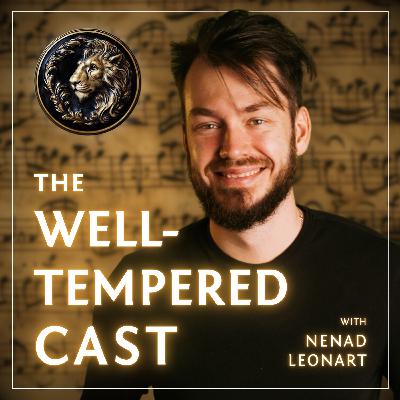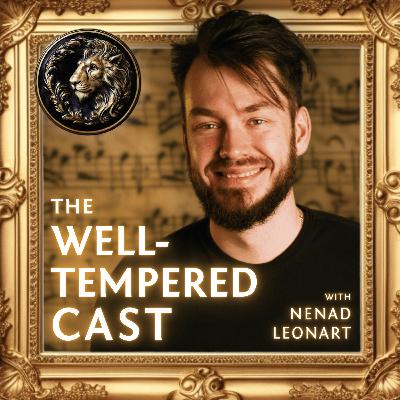Living A Baroque Life: 10 Surprising Everyday Truths
Description
Unlock the secrets of a world gone by in our latest episode of The Well-Tempered Cast! Join me, your host Nenad Leonart, a passionate harpsichordist deeply enamored with the Baroque era, as we embark on a captivating journey exploring the intricacies of life from the 16th to 18th centuries.
Time Travel Pt.1 {10 Realities of the Baroque} Daily Life & Society [The Well-Tempered Cast – Early Music Podcast]
In this first installment of a four-part series, we delve into the first episode containing "Ten Things You Should Know About Baroque Life." What defined daily existence during a time when religion was the cornerstone of society? How did social hierarchies shape interactions and opportunities? And what can the vibrant musical heritage of Baroque music tell us about the emotions and thoughts that coursed through the lives of its people?
This episode is not just for history buffs; it’s for anyone interested in understanding how our modern world echoes the sentiments and structures of the past. Looking at the rigid class divisions but also the everyday routines influenced by the seasons and church calendars, we’re here to paint a vivid picture of what it truly meant to live in the Baroque era. Get ready for insightful discussions on performance practice, historical instruments, and the cultural history that shaped legendary composers and their masterpieces.
So, whether you’re here to learn more or just be entertained, make sure to subscribe and tune in to The Well-Tempered Cast. Don't forget so you don't miss out on the future episodes.
And: Don't forget to like, comment, and share if you enjoy the episode! Your thoughts and insights are invaluable as we explore these fascinating themes together!
Key Points Discussed:
- First of a four-part series exploring life in the Baroque period to better understand how it shaped art and culture.
- Religion was integral, influencing everything from daily routines to art.
- Massive events like the Thirty Years' War and the Reformation illustrate religion's impact.
- Average lifespan of 30-40 years due to high infant mortality, diseases, and poor nutrition.
- Families often had many children who contributed economically.
- Parenting was pragmatic, focusing less on emotional connections.
- Urban areas were unsanitary, contributing to disease spread.
- Poor hygiene standards were prevalent, even in places like Versailles.
- Most people lived in rural, close-knit communities, where social ties were crucial for survival.
- Manual labor was extensive without modern conveniences, making daily life challenging.
- Social class determined opportunities in education, marriage, and rights.
- Social mobility was rare and typically relied on talent or luck.
- Life was dictated by nature's rhythms and religious observances; no standardized time.
- Marriages were often economic arrangements; romantic love was rare.
- People rarely traveled, making small changes exciting novelties.
- Music and art changes were subtler and more impactful due to less sensory overload compared to today.
- Alcohol was a staple, often more consumed than water due to fermentation's preservative qualities.
#baroque #life #podcast #earlymusic
Hosted on Acast. See acast.com/privacy for more information.






